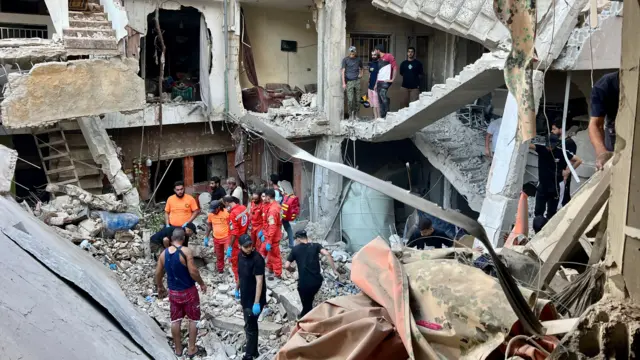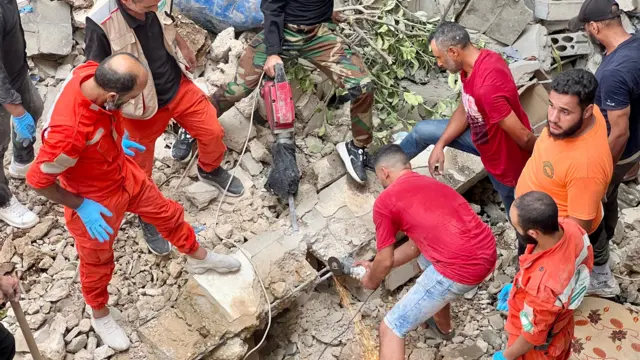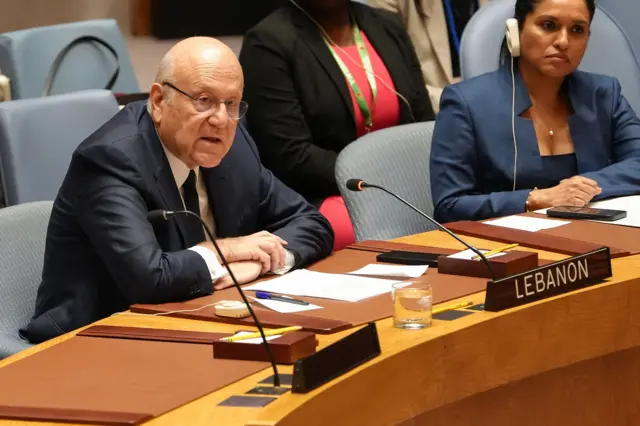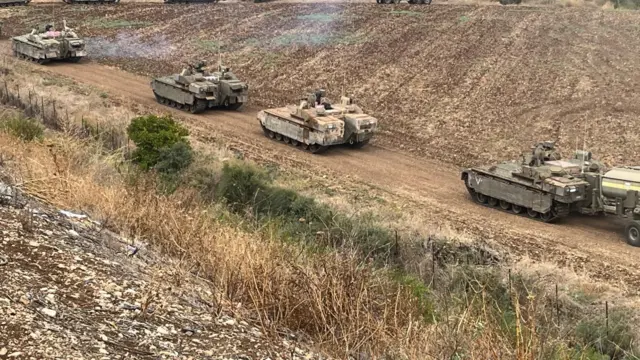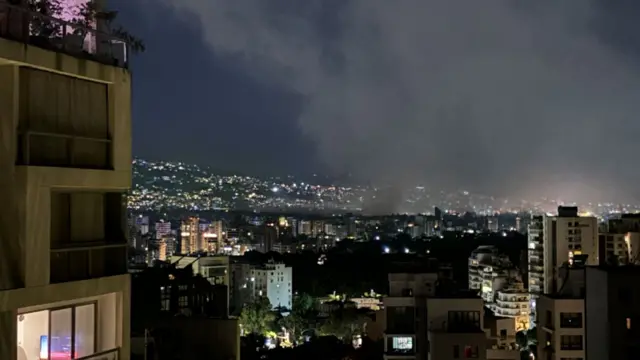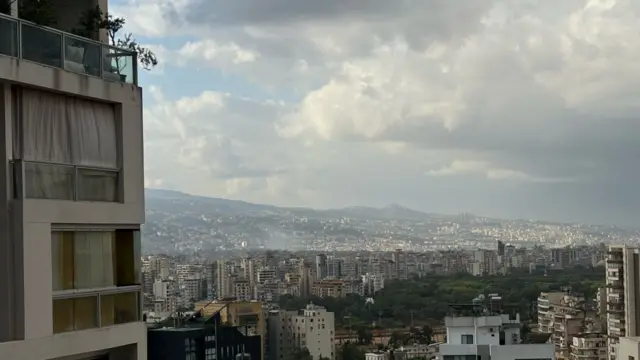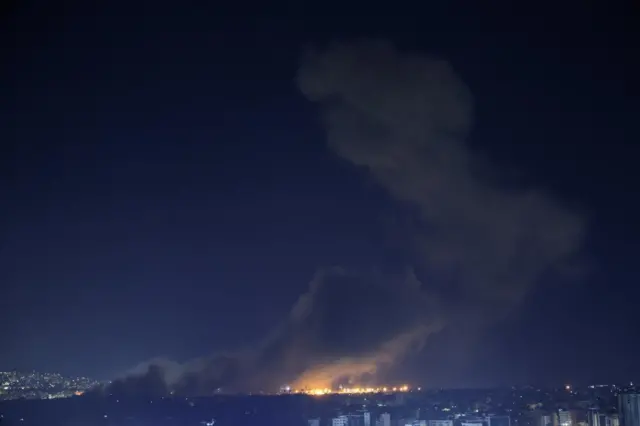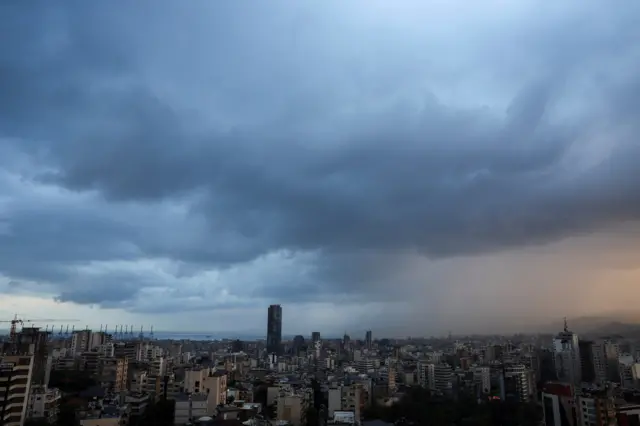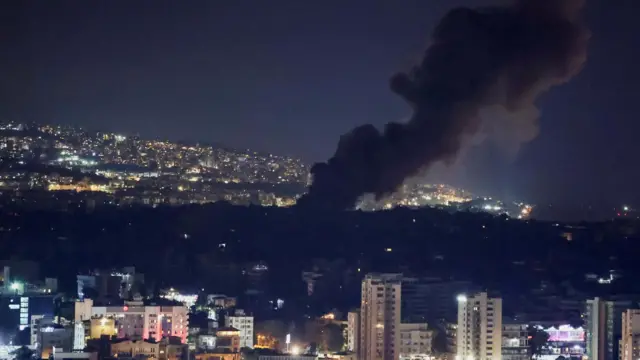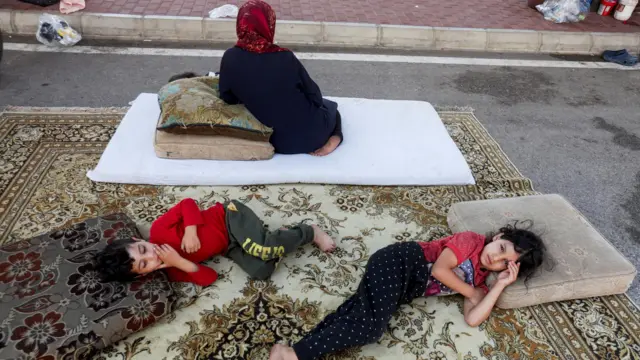Rockets fired at Mossad HQ, says Hezbollahpublished at 10:40 BST 1 October 2024
We now have more on the air raid sirens in the Tel Aviv area, which we reported a short while ago.
Hezbollah says it launched "Fadi-4" rockets at the headquarters of Mossad and Unit 8200, which are in the Tel Aviv area.
Mossad is the international arm of Israel's intelligence service, and is said to be behind the explosions of pagers and walkie talkies in Lebanon last month. Israel has not commented on this claim.
Unit 8200 is the Israeli military's central intelligence gathering body and is often likened to the US National Security Agency (NSA).
There have been no reports of damage to the headquarters.
